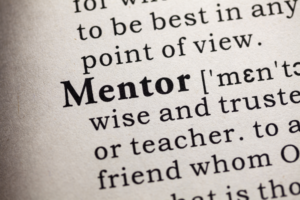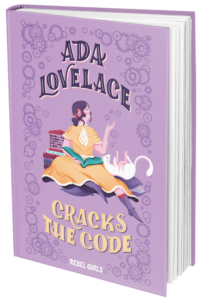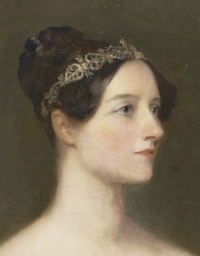 Less than a quarter of women in STEM have ever had a mentor, according to a small Twitter survey that we ran in January, yet mentoring is one of the most effective ways for women to develop their career.
Less than a quarter of women in STEM have ever had a mentor, according to a small Twitter survey that we ran in January, yet mentoring is one of the most effective ways for women to develop their career.
That’s why we’ve launched the Finding Ada Network, a new online peer mentoring and knowledge sharing network for women in STEM and advocates who work towards gender equality. Our aim is to provide affordable long-term peer mentorship opportunities, along with actionable advice on careers, skills, advocacy and more, to women whether they work in industry or academia, or aren’t currently working at all.
According to mentorship platform Chronus (about whom you’ll hear more later), mentoring has benefits for both mentors and mentees, with mentors experiencing a six times higher promotion rate and mentees seeing a five time higher promotion rate. Mentees also benefit from the opportunity to improve their personal and professional skills, including improved confidence, communications skills, ability to process feedback and better problem solving. Mentors develop their leadership skills, develop new professional relationships, gain new insights into their industry/field, and experience increased job satisfaction.
So why aren’t more women benefitting from mentoring? In large part, access to mentoring depends a lot on who you work for. Larger companies are increasingly seeing the benefit of workplace mentoring, but for many small businesses it’s both unaffordable to buy in a world class mentoring platform and difficult to provide enough mentors. Indeed, it can be challenging for mentees if your mentor is too close to you in the org chart, stifling the honesty that’s essential for a mentoring relationship to flourish.
With the Finding Ada Network, your mentor could be anyone! It might be someone within the same industry but working for a different company, or someone going through the same career stage or facing the same challenge, or someone with a completely different perspective. Or all three – you’ll be able to have as many mentors as you need, with relationships lasting as long as required.
Phase 1 launching now
The first phase of the Finding Ada Network has already launched to women and advocates in STEM in the UK. Subscribers have access to exclusive content covering careers, personal and professional development, mentoring best practice, advocacy and HR policy, navigating academia and more. And they can also access a private area of our community forum where they can discuss the challenges they face and ask advice from other members in an informal group mentoring context.
Women in STEM and advocates for gender equality in STEM, whether male or female, can enjoy a 40% discount through until the end of July, bringing the cost down to £5.40 a month, or about the same price as a glass of wine or a pint if you’re down the pub, and almost certainly cheaper than the taxi home afterwards!
Ambitious plans
We have ambitious plans for the Finding Ada Network! We are working with Chronus to bring you their best-in-class peer mentorship platform, providing one-to-one mentoring complete with goal setting, scheduling, file sharing and more. Chronus is used by global companies such as Amazon, EY and more, but for most small businesses and certainly for individuals, it’s out of reach.
Once we have a robust community, we’ll be partnering with Chronus to expand our offering so that we cover all four types of mentoring:
- Traditional: 1-1 mentoring with a (sometimes only slightly) more senior advisor
- Reverse: 1-1 mentoring for senior staff with a younger advisor, useful for bridging generational gaps
- Process: Focused on supporting a mentee through a specific process, eg asking for promotion or organising a conference
- Group: Asking for advice on an ad hoc basis from the wider community
We also plan to expand to the EU, North America and eventually the rest of the world. If you’d like to know when we do, please join our waiting list and we’ll email you as soon as we arrive in your country.
Supporting advocates
There are many mentoring schemes available for women in STEM, but the Finding Ada Network is different, and not least because we are the only mentorship network that recognises the importance of advocates to the mission of realising equality for women in STEM. According to our research, nearly half (48 percent) of women working in STEM also have a secondary role as advocates for gender equality, with only 11 percent of our survey respondents working solely as advocates (and 57 percent of those are men).
The advocates we spoke to in our research told us that they had ended up in their role because they believed it was important work, but that they’d had no formal training and received less support than they would like. We want to change that, and make sure that advocates get easy access to the information they need to do their job, and that they too can benefit from the wisdom of the Finding Ada Network crowd, as well as sharing their own experience and knowledge.
In it for the long haul
Mentorship works best when the relationship between mentor and mentee is given time to grow, to flourish and to deepen. But few people spend their working lives progressing up the ladder within a single company anymore, and increasingly we must turn to portfolio careers, learning to pivot and adapt as circumstances change. Traditional employer-based mentorship schemes fail participants when they change jobs or temporarily leave the workforce for whatever reason and lose access to their mentor.
The Finding Ada Network will create a stable environment for mentorship, so you can take your mentors with you even if you change jobs, or take a sabbatical or career break. Equally, your expertise continues to be valuable to others regardless of where you work or, indeed, if you work. We recognise that life is changeable, so by focusing on online mentoring that’s independent of your workplace, we will create an environment that fosters long-term mentoring relationships, supporting women wherever they are and whatever they are doing.
Support Ada Lovelace Day whilst supercharging your career
One last unique aspect to the Finding Ada Network is that by subscribing, you’re also helping us to inspire the next generation of girls in STEM and promote and support women currently working in or studying STEM via the wide portfolio of work we do year round. Ada Lovelace Day isn’t just a day, it’s a mission, and you can be a part of that mission by becoming a part of the Finding Ada Network.
So subscribe today, and become part of the genesis of something amazing!

 Less than a quarter of women in STEM have ever had a mentor, according to a small
Less than a quarter of women in STEM have ever had a mentor, according to a small 
 Want to inspire girls to love code?
Want to inspire girls to love code?